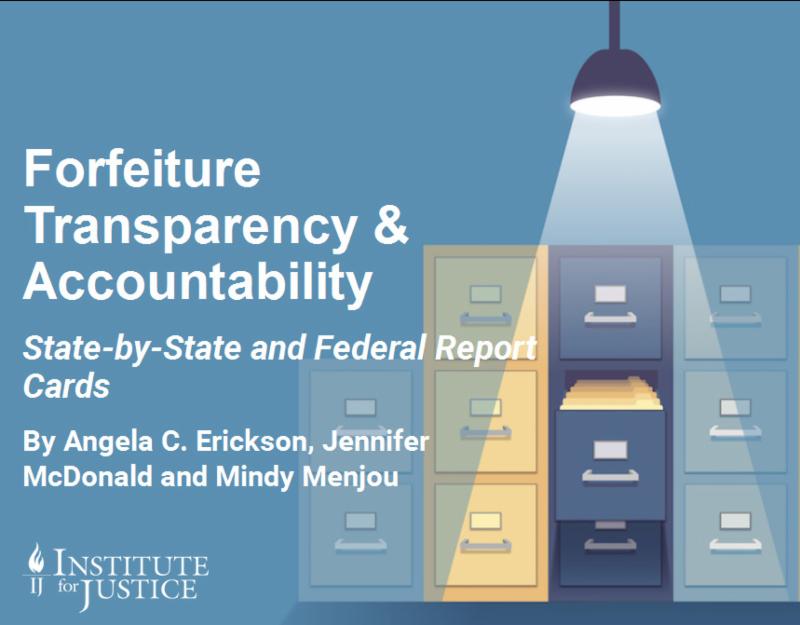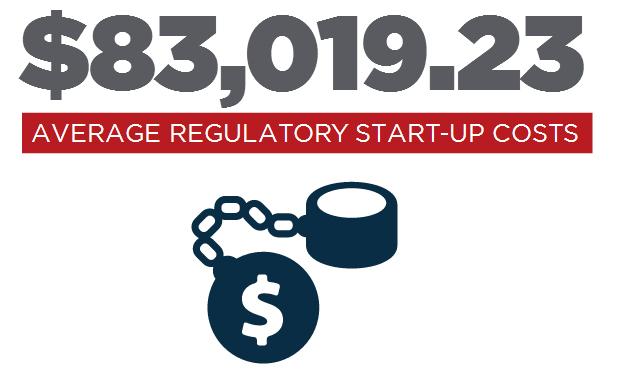| |
|
|
Can grammar be racist?
University rejects "unjust language structure" & "grammatical correctness"
 |
|
The Director of the Writing Center at the University of Washington at Tacoma said staff and tutors will "emphasize the importance of rhetorical situations over grammatical 'correctness'" because grammar is "racist." Taxpayer-supported writing consultants want to "help students become more critical of these unjust language structures as they affect students' writing and the judgment of that writing" and "discuss racism and social issues openly in productive ways."
But Barry Brownstein writes grammar is not an arcane structure but is fundamental to learning to reason and think. He says education comes in three stages: grammar and memorization; analysis and logic; rhetoric and evaluation. When educators skip the first two steps they end up asking six-year-olds how they feel about what they're learning before they get to learn it.
"This education shortcut...carries over into adulthood where adults 'are ready to give their opinions long before they've had a chance to understand the topic...Diagramming isn't an arcane assignment designed to torture the student. It forces students to clarify their thinking, fix their sentences, and put grammar to use in the service of writing - which is, after all, what grammar is for.' Grammar improves our writing and clarifies our thinking. Writing and reasoning are pillars of student success. Why is the University of Washington administration placing political correctness before student success?" asks Brownstein.
Source: Intellectual Takeout: Can Grammar Be Racist?
|
Mississippi charter schools ranked
Two national education reform groups rank Mississippi charter school system 10 & 38
 The National Alliance for Public Charter Schools ranked Mississippi's charter school law as #10 in the country. Meanwhile, the Center for Education Reform ranked Mississippi #38. Why the difference? The National Alliance for Public Charter Schools ranked Mississippi's charter school law as #10 in the country. Meanwhile, the Center for Education Reform ranked Mississippi #38. Why the difference?
The National Alliance for Public Charter Schools favors tight safeguards on launching and governing new schools, while the Center for Education Reform supports fewer restrictions and less burdens to opening a new school. Mississippi's charter school law and authorizing board have taken a very conservative approach in vetting charter school applications. Currently only three are in operation and nine more have indicated their intent to apply for permission to open schools in 2018.
The National Alliance for Public Charter Schools notes, "Mississippi also made major improvements to its law, now allowing students in school districts rated C, D, or F to cross district lines to attend a charter school and permitting charter school employees to participate in the state retirement system and other benefits programs." The report continues, "Mississippi's law contains a cap with room for ample growth, includes a single statewide authorizing entity, provides a fair amount of autonomy and accountability, and includes strong operational and categorical funding. Potential areas of improvement in Mississippi's law include providing applicants in all districts with direct access to the state authorizer, providing equitable access to capital funding and facilities, and strengthening accountability for full-time virtual charter public schools.
|
Federal Trade Commission calls for occupational licensing reform
FTC: Reforms good for competition, workers, consumers & the American economy
"Nearly thirty percent of American jobs require a license today, up from less than five percent in the 1950s. The expansion of occupational licensing threatens economic liberty," notes the Federal Trade Commission in a call for occupational licensing reform.
"Unnecessary licensing restrictions erect significant barriers and impose costs that cause real harm to American workers, employers, consumers, and our economy as a whole, with no measurable benefits to consumers or society. Based on recent studies, the burdens of excessive occupational licensing - especially for entry- and mid-level jobs - may fall disproportionately on our nation's most economically disadvantaged citizens. Even in professions in which licensing makes sense, harm often arises from the complexity and duplication of state-by-state licensing requirements and fees, combined with a lack of reciprocity among states."
"Unnecessary licensing requirements hit military families particularly hard; these families move often, which means military spouses often must find jobs in new states that have new and different licensing requirements. The FTC's Economic Liberty Task Force looks forward to working with our state partners and other interested stakeholders as we bring greater attention to these important issues. Occupational licensing reform is good for competition, workers, consumers, and the American economy."
Source: Federal Trade Commission
|
The Permission Society
Founders proclaimed Americans free; then why do we need licenses and permits for everything?

Societies have two different models for operating: the "nuisance system" and the "permit system." The nuisance system says you are free to live and use your property as you wish as long as you don't harm (that is, aren't a nuisance to) another person. The permit system says you are not free to do something unless the government gives you permission.
In his recent book on "The Permission Society," Timothy Sandefur of the Goldwater Institute says the Founders embraced the presumption that we are all basically free.
He told the Cato Institute, "That's reflected in the text of the Constitution, which speaks of securing the blessings of liberty, which says that our rights shall not be abridged. And of course the Ninth Amendment, which makes clear that the list of rights is not exclusive. Just because the Constitution doesn't say you have the right to run barefoot through sprinklers on a hot summer day doesn't mean that you don't have that right. It says government is not giving you freedom, it is simply listing a few of your freedoms in the Bill of Rights."
"So how have we come to the point where today you need to get the government's permission for a wide variety of the things that you spend your daily life doing? You need a permit to build a house, own a gun, get a job, to buy some things, run businesses, pay your employees - even freedom of speech now often comes with some sort of permit requirement...Unfortunately I believe we are sliding more and more into a society that presumes you unfree, unless you get the government's permission. And as we move toward the Permission Society, we're moving away from the principles of freedom upon which our Constitution is based."
You can watch Sandefur discuss more here on C-SPAN.
Source:Cato Institute
|
Mississippi licensure reform could become national model
Legislation passed this session puts occupational licensing boards under supervision of elected officials

To address the overuse of licensure and the "permission society," the Mississippi legislature this year became the first state in the nation to make major licensing and regulatory reforms following the U.S. Supreme Court decision North Carolina State Board of Dental Examiners v. FTC.
HB1425 puts new regulatory actions under supervision of elected officials.
The new law will give the governor, secretary of state, and state attorney general joint responsibility for "actively supervising state executive branch occupational licensing boards to ensure compliance with state policy." A majority of the three executive branch officials - or their appointees - would have to approve all new regulations passed by the state's licensing boards before those rules could take effect.
Reason.com, in an extensive article about the legislation, says, "No other state has yet considered reforms as far-reaching as Mississippi's" but "efforts are underway in Arizona, Missouri, Nebraska, and Wisconsin to review existing state licensing laws, with special scrutiny for laws that serve no public health or safety function."
The Reason article explains, "In place of one-size-fits-all licensing rules that can be corrupted and abused by incumbent professionals to block competition, Mississippi's legislation offers a variety of alternative measures that protect the public from fraudulent or untrained practitioners without imposing high costs on qualified individuals. Market competition, third-party or consumer-created ratings systems like those available through apps such as Yelp, and private certifications are offered as potential solutions. If none of those work for a certain profession, the state can move along to mandatory inspections, impose bonding and insurance requirements, and even authorize the state attorney general to target frauds. Only after all that has been tried, and failed, should a new licensing law be created."
Jameson Taylor, Vice President for Policy at the Mississippi Center for Public Policy, a free market think tank, says giving veto power to the new 3-member commission creates a clear line of accountability. He says it might not be a perfect mechanism, but it gives the public an opportunity to weigh in if something is out of line. "Right now, it's a process that's entirely controlled by insiders," he says. "This would fix that."
Russell Latino, state director of Americans for Prosperity-Mississippi, called it a "groundbreaking reform" and a "first-of-its-kind legislation that could become a national model for how occupational boards operate.'"
Source: Reason.com
|
|
|
|
|
![]()















 The National Alliance for Public Charter Schools ranked Mississippi's charter school law as
The National Alliance for Public Charter Schools ranked Mississippi's charter school law as 



 Under a new
Under a new 
 "In the next two years, Mississippi alone is going to be short 80,000 craft professionals such as electricians, masons, carpenters and welders," said Mike Barkett, president of the Mississippi Construction Education Foundation (MCEF) in a recent Mississippi Business Journal
"In the next two years, Mississippi alone is going to be short 80,000 craft professionals such as electricians, masons, carpenters and welders," said Mike Barkett, president of the Mississippi Construction Education Foundation (MCEF) in a recent Mississippi Business Journal 


 Religious liberty is good for the economy, so says a new
Religious liberty is good for the economy, so says a new  "A little understood revolution in American law is taking place- regulation by litigation, which places national lawmaking into the hands of powerful coalitions of state attorneys general (AGs) who have no lawmaking power," reports the Competitive Enterprise Institute about a new paper "
"A little understood revolution in American law is taking place- regulation by litigation, which places national lawmaking into the hands of powerful coalitions of state attorneys general (AGs) who have no lawmaking power," reports the Competitive Enterprise Institute about a new paper " Regulatory reform is cutting red tape in North Carolina and it can work in Mississippi, too. So says Joe Sanders of the John Locke Foundation in a
Regulatory reform is cutting red tape in North Carolina and it can work in Mississippi, too. So says Joe Sanders of the John Locke Foundation in a  By passing a phase-out of Mississippi's franchise tax, Mississippi Lieutenant Governor Tate Reeves and Speaker of the House Philip Gunn this month received the 2016 Outstanding Achievement in State Tax Reform by the Tax Foundation.
By passing a phase-out of Mississippi's franchise tax, Mississippi Lieutenant Governor Tate Reeves and Speaker of the House Philip Gunn this month received the 2016 Outstanding Achievement in State Tax Reform by the Tax Foundation.
 Mississippi Department of Education (MDE) is seeking feedback on revisions to the College and Career-Ready Standards for Science. MDE has created
Mississippi Department of Education (MDE) is seeking feedback on revisions to the College and Career-Ready Standards for Science. MDE has created 





